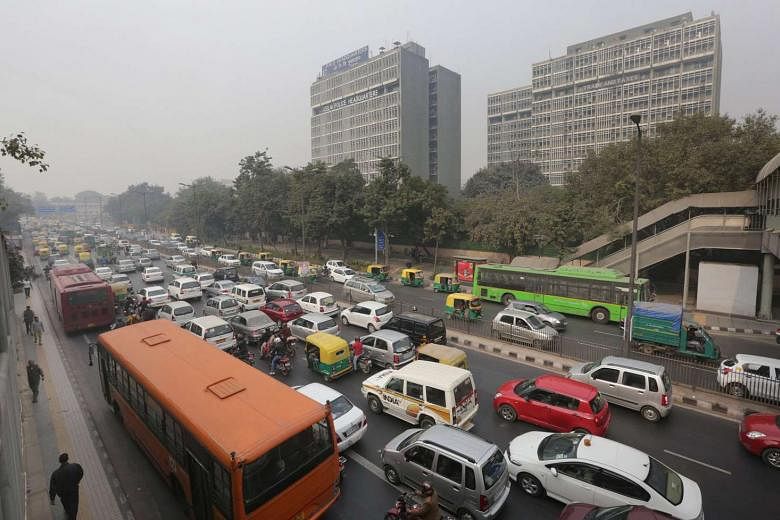A stringent measure to cut down on vehicular pollution in Delhi, which started from Jan 1, has seen mostly cars with odd-numbered plates on the streets during odd days, and those with even-numbered plates out and about during even days, with Sunday exempted.
The experiment is going strong, with streets visibly congestion free, but environmentalists said pollution levels still remained in the severe category.
This means the levels of PM2.5, or particulate matter - the most hazardous of small airborne particles, has remained above 250 micrograms per cubic metre so far in 2016.
This, the environmentalists said, was mainly due to high moisture levels and poor winds, which has made this winter more polluted than last year's.
However, the Delhi government has claimed that pollution levels are down by 33 per cent.
"There are reduced wind speeds, so there is lower dispersal of pollutants. The effect of the odd-even scheme is getting lost due to meteorological influences. We also need to control so many other sources," said Mr Sumit Sharma from the The Energy and Resources Institute in Delhi.
Women and motorcyclists are exempt from the restrictions in the city, which has seen pollution levels double in a decade. The trial will last till Jan 15.
On Wednesday, the Delhi High Court asked the Delhi government to prove that the odd-even formula was cutting down on pollution, and asked why it had to last for more than a week.
The court, which noted the inconvenience of commuters, has now asked the government for pollution data for the first week of the year.
Though 3,000 additional buses are running on the streets and the Delhi metro is running at full capacity, vehicle owners are still complaining that the weak public transport infrastructure remained a problem for those who cannot drive their cars due to the restrictions.
"It has become very difficult to go out. There is no... connectivity with public transport," said Mr Srinivas Panda, a bank official, who works in Central Delhi.
"I took an auto rickshaw and he asked for 100 rupees (S$2.15) for a 2km stretch. It would otherwise have cost less than 50 rupees."
But others had no problem with the restrictions. India's Chief Justice T. S. Thakur has been carpooling to work, while ministers in the Delhi government have been taking the metro, bus and even cycling to work.
Mr Rakesh Sharma, a tax consultant, said he had no problems with taking the metro.
"I have actually been saving time on the metro," he said on his travel from his house in east Delhi to his workplace in central Delhi.


